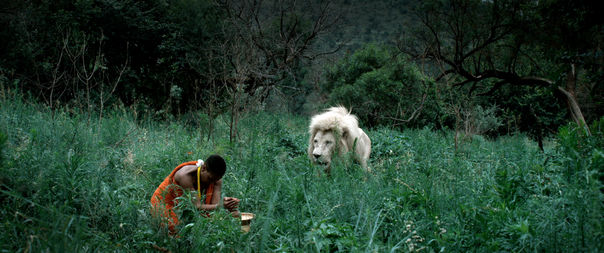Dreams Collapsed by Traditions
South African drama ELELWANI raises the pertinent argument of tradition versus modernism, but loses steam on the way.

ELELWANI
The Berlinale Forum film ELELWANI, based on a novel by Titus Maumela and directed by Ntshaveni wa Luruli brings to the forefront the classic conflict between the contemporary aspirations of the younger generation and the deep-rooted traditions of the older, but there is nothing revelatory in content, and the film suffers from a sluggish treatment that drags the narrative down.
Elelwani is young, liberal, and in love. She was educated away from the shackles of the barbaric landscape of her community, and sees an ambitious future with her boyfriend far away in Chicago. Returning to her tribe in the Venda region, she finds her youthful idealism gradually crumbling as her father already has plans for her marriage, and to honour the culture, she must abide by the diktats and abandon her dreams.
The film has a linear narrative that neatly documents Elelwani’s life after returning to her remote village, but the exchange of dialogue among the family members lacks a sense of naturalism and comes across as superficial. On the other hand, it is the emotionally stirring performance of Florence Masebe that becomes the epicentre of the film, much like the difficult moral choice her character has to make.
Her inherent conflict is articulated early in the film and establishes the tone which the film mostly maintains. “I will not marry the man I do not love”, a firm Elelwani tells her father who interrupts her by saying: “What’s in your heart means nothing.” This speaks a lot about the intentions of her father whose intentions are at least partly mercenary.
What the film also reflects effectively is the rigidity with which the tradition-worshippers stick to their ways despite being able to see the absurdity in them. It becomes a matter of hypocrisy. It is not only the culture Elelwani’s parents are honouring, but also a convenient ploy to get rid of their daughter.

